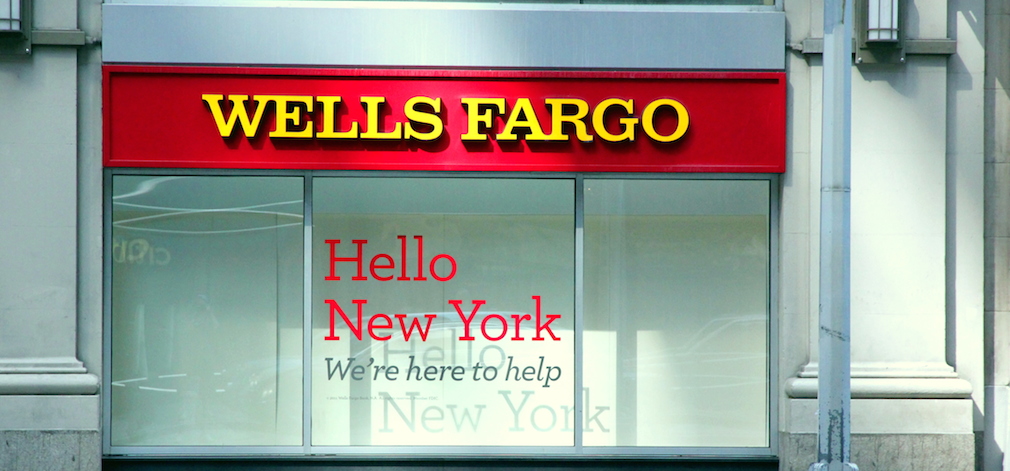During a heated exchange in the Consumer Financial Protection Bureau’s semi-annual hearing in front of the House Financial Service Committee, Rep. Ann Wagner, R-Mo., grilled Director Richard Cordray on the bureau’s lack of initiative in the massive Wells Fargo fake account scandal.
The hearing already opened up politically tense after the opening remarks from House Financial Services Committee Chairman Jeb Hensarling, R-Texas, and Rep. Maxine Waters, D-Calif., Ranking Member of the Committee on Financial Services.
But tensions escalated when it came time for Wagner’s questioning, focusing the brunt of her time on creating a timeline of events to prove her case that the bureau just stood by during the Wells Fargo scandal.
Wagner started her time by asking Cordray, “When did you first read the LA Times article?” Cordray responded, “I do not know.”
She is referring to an article the Los Angeles Times published titled, “Wells Fargo's pressure-cooker sales culture comes at a cost,” by E. Scott Reckard on Dec. 31, 2013.
The article unraveled the first-ever reports of Wells Fargo employees opening unneeded accounts for customers, ordering credit cards without customers' permission and forging client signatures on paperwork to meet sales goals.
As it stands, the credit behind uncovering the Wells Fargo case is already the subject of debate. While it’s clear the LA Times worked in conjunction with the government, it’s not clear how much of a part the CFPB played.
Wagner dedicated her time to showing that the CFPB failed in its role in the scandal.
Wagner shot out a series of "yes" or "no" questions for Cordray to answer on when his bureau started to investigate Wells Fargo, but the questions mostly turned into rough answers from Cordray as he argued the points longer than Wagner seemed to prefer.
Frustrated with where the questions were going, Cordray cut her off, saying, “You’re conflating things, and I don’t want to build on that in an erroneous fashion.”
Running out of time, Wagner argued that the CFPB touts it “independent and comprehensive” review in the Wells Fargo case, and yet they only interviewed three people.
“This does not seem very comprehensive to me sir,” said Wagner. “The CFPB was asleep at the wheel. Your investigation was far from independent and comprehensive.”
There was no time for Crodray to respond after the exchange, but it was clear he was frustrated, slipping in a final comment, “You don’t what to give me time to respond? That’s okay,” as the hearing procedures moved on.
However, Rep. Michael Capuano, D-Mass., helped give Cordray the floor after scolding Republicans for being all over the place with their questions. He joked that the whole point of the hearing is “to beat the hell out of (Cordray) and get rid of this agency.”
So, as a result, he chose to allot the rest of his time to Cordray to explain his side of the Wells Fargo story.
“Let me recap the event,” said Cordray.
He explained that the bureau first received a whistleblower tip in July 2013. The exposé by the LA Times wasn’t published until December.
Cordray did add that the LA Times coverage was a “splendid piece of investigative reporting” and that investigative reporting often aides government investigations.
After that first whistleblower tip, Cordray explained that the Wells Fargo case over time grew into something bigger.
As the CFPB watched Wells Fargo through 2014 and 2015 in supervisory activity, it became clear the situation was serious enough to migrate into an enforcement action, he said.
“Nobody denies that we established this through a joint investigation,” said Cordray. “We worked with the LA attorney’s office, and we resolved the matter. And not just on the basis of California, but nationwide, with broad injunctive relief that this will not happen again at Wells Fargo.”
He added that the case cleaned up this type of sales practice throughout the entire industry. “This is a very serious matter. If we establish that principle, there will be a lot less problems in the future,” he said.
Cordray also added later in an exchange with Rep. Stephen Lynch, D-Mass., that the Wells Fargo case started in a limited way and then grew.
“It became exponential over time,” he said. And to those who say he should’ve known everything on day one, “I think that’s a misplaced criticism,” Cordray added.
The CFPB brought it to a national resolution and made sure it stopped the issue, Cordray said.
“It didn’t just throw money at it and go about its business,” he said of Wells Fargo.
But as Cordray debates over the intricacies of how the case got started, Wells Fargo is still busy dealing with the repercussions. Just last month, Wells Fargo reached a $110 million settlement in a class action lawsuit brought on behalf of the bank’s customers who had a fake account opened in their name.






